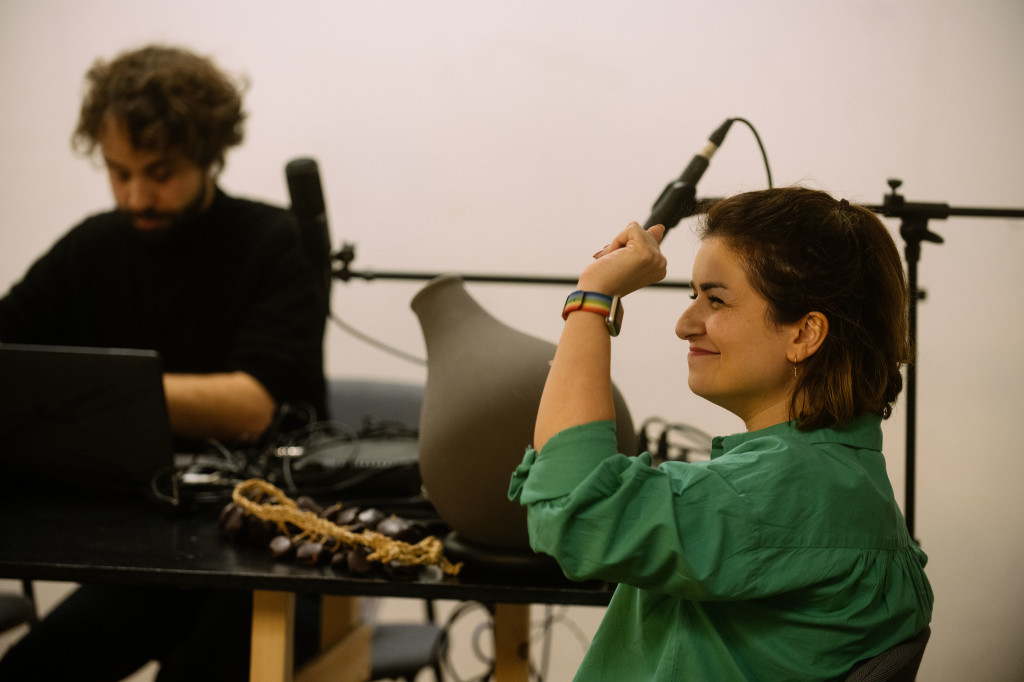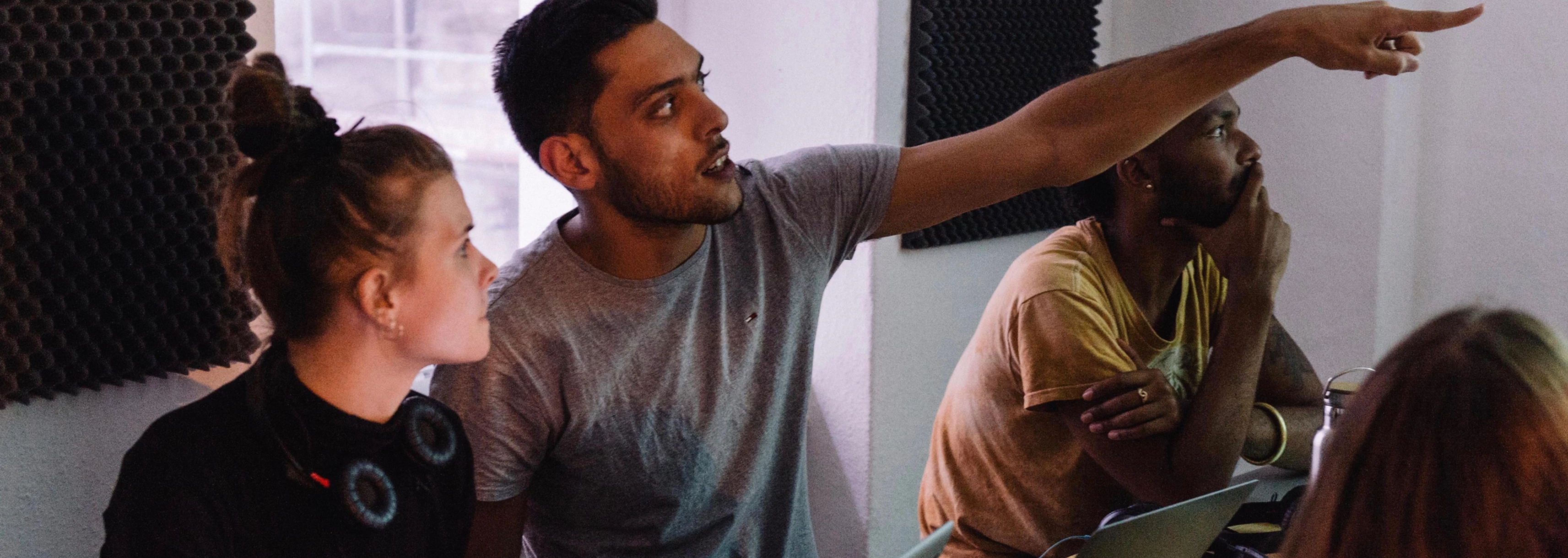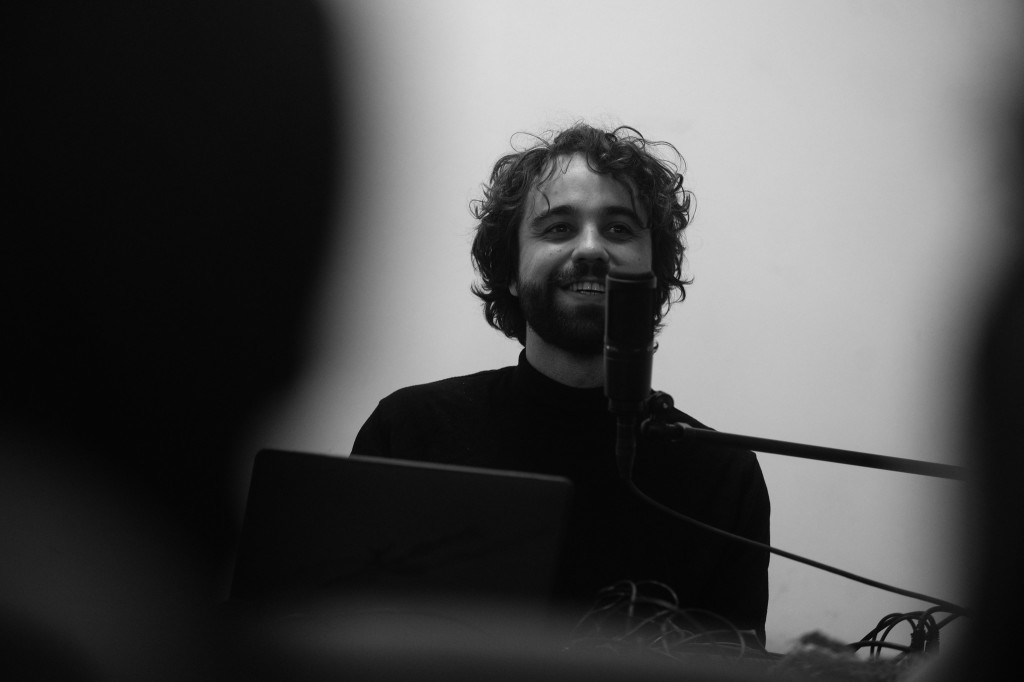This is an easy one to relate to: you want space to be creative, to grow in your practice, and to express emotions We got to hear from a volunteer-led effort that makes that kind of space, for refugees and for people who have often lacked access.
We got to host this session during the (rescheduled) CTM Festival in May, but now coming into the fall seems like a perfect time for considering the topic. Joining us from Open Music Lab Berlin were Kimia Bani, Iranian-born artist / participant / instructor, and OML co-founder and co-director Ben Osborn.
Here’s the full audio:
Kimia Bani & Ben Osborn (Open Music Lab)
What does it mean to mix music education and activism? How can spaces for music-making be inclusive and respond to crises in sustainable, enduring ways? And whereas music technology’s history often centered on established, privileged institutions and individuals, how might we more actively collaborate across different musical cultures, backgrounds, styles, and individual voices? Kimia Bani has been both a participant in Open Music Lab and an instructor; Ben Osborn is the space’s co-founder and co-director. They’ll share their experiences and explore how we can all play together in new ways.
The talk launched the Hacklab 2022 week, where a group of fellows selected via open call explored and realised new collaborative musical ideas.
There were some fantastic moments and revelations in this one. Where we hosted it was significant, too – AL Berlin, which has become a community meeting place in Kreuzberg, for the Arabic scene (see their upcoming festival) and many, many others. Berlin’s east and west are not limited to Germany.
This is a really safe space for the marginalized people. Also, we know that many women don’t have this opportunity to learn music in their own country, so they can feel safe to come there and learn music or play their own music.
Kimia bani
A significant backdrop is the influx of refugees in the city, particularly from places like Syria and Ukraine. Even as discourse about Berlin focuses on reunification and the wall coming down, that misses the defining transformations of the most recent years. If you’re looking for the new musical identity of Berlin, you need to stop ignoring these new immigrant and refugee groups.

Kimia talks about being a woman trying to make music in Iran; the other reality is that a place like Germany can provide safe environments to develop that don’t exist in the places people have come from. In Iran, it’s not possible to be a music producer publicly as a woman or even to play non-traditional music or play for mixed audiences. (One thing I was surprised to hear from some Iranian women performers was how much they enjoy playing for men. I just wouldn’t think of this automatically, and because it’s something that doesn’t come up in western discussions of gender balance since it’s a different experience.)
Actively creating safe space is just as important in Berlin and other cities, too – not simply assuming the “progressive” atmosphere will make it happen. So they also talk about how they manage volunteers and create those kinds of environments.


And do listen through, as eventually you get Kimia playing live and talking about how she teaches others Persian rhythms. “I am learning other international rhythms like for other countries, Turkish rhythms, Arabic rhythms, Latin rhythms,“ she adds, which helps her appreciate what it means to learn non-native techniques.
And she talks about the appeal of electronics, too: “I don’t need a band; I’m my own band…. it’s how you can be independent.”
Out of this come a range of cross-cultural encounters – which was also important to us in the MusicMakers Hacklab. (This year likewise featured people from a broad variety of backgrounds and cultures, and of course included Ukrainian refugees.)
“I don’t need a band; I’m my own band…. it’s how you can be independent.”
Kimia Bani
You can learn more about Open Music Lab via their site – and perhaps consider starting a similar initiative in your own neck of the woods. (How to do that – including managing volunteers, equipment donations and shared instrument libraries as we saw in the Beirut Synthesizer Center, and creating safe spaces – is definitely something we could explore here on CDM further!)
They also have two richly diverse compilations, so you can hear some of the music emerging from this space:
Watch this space for more on community development. By the way, two other communities I’ve been listening to – hearing lots of shared experiences in community building – just this summer. I caught up with Gamerella yesterday; it’s an inclusive game jam in Montreal, here at MUTEK Festival (and they have a podcast, too):
https://tag.hexagram.ca/gamerella/
Plus at Berklee in June, heard about the incredible work done at WIllie Mae Rock Camp and other projects by LaFrae Sci:
https://www.williemaerockcamp.org/